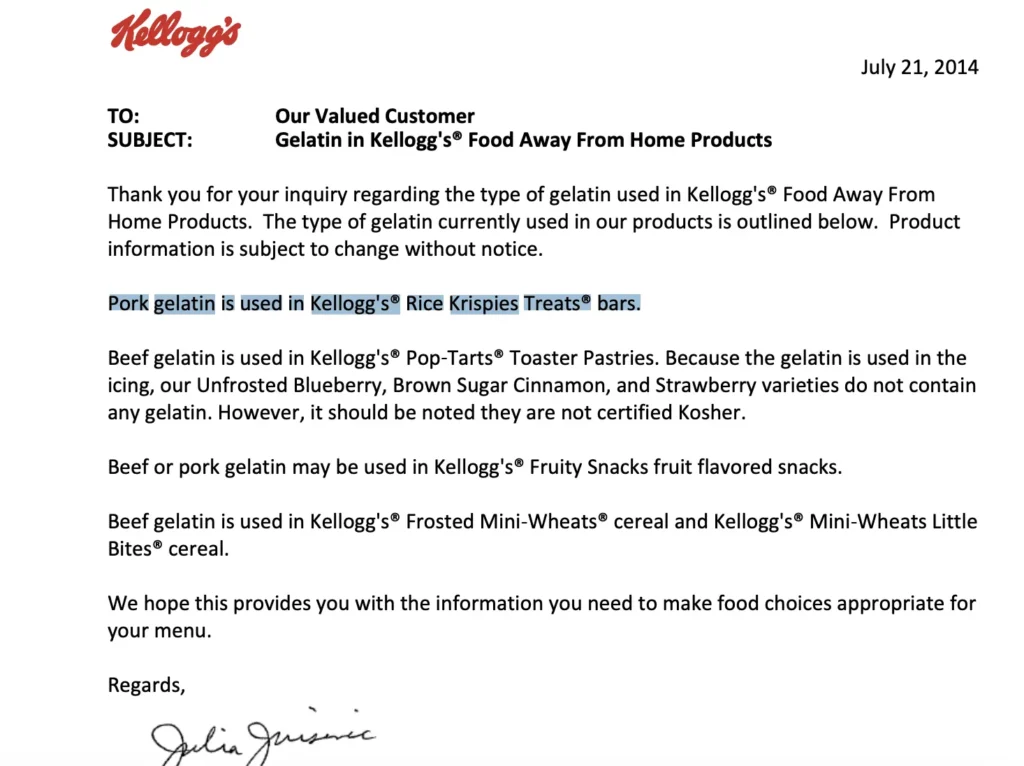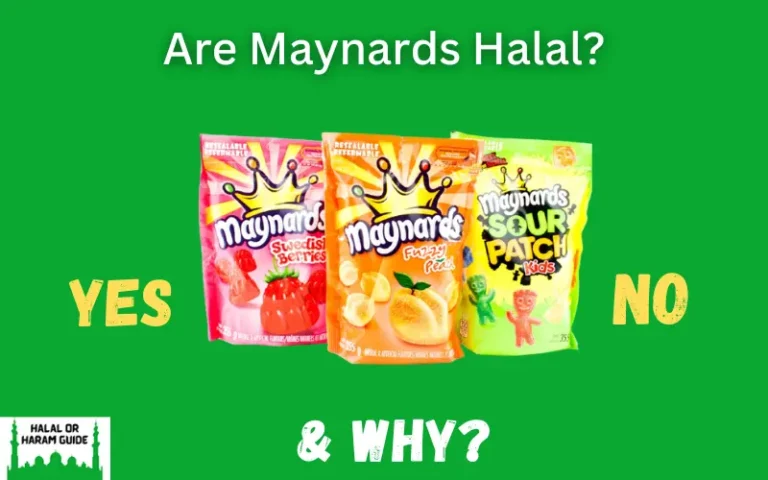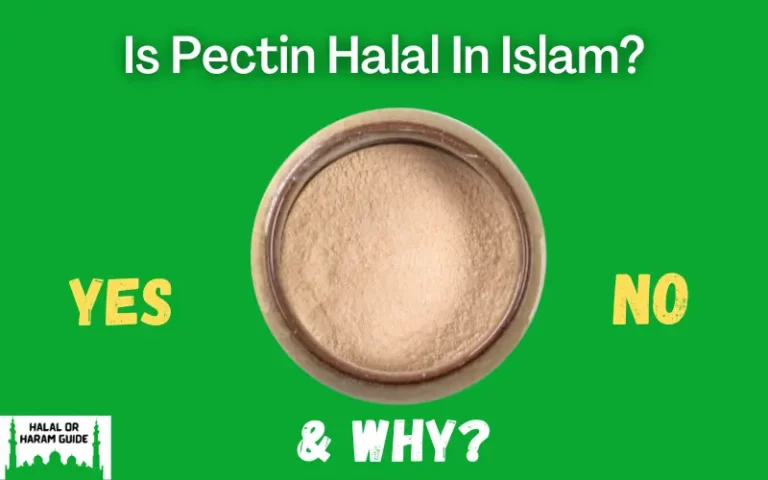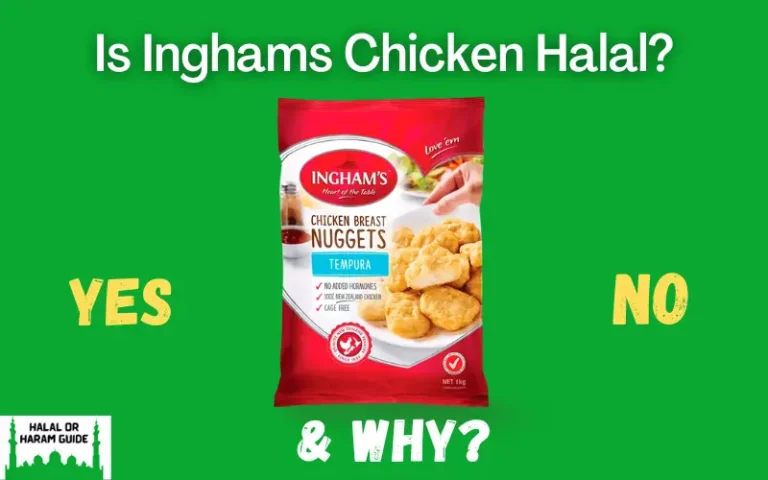Are Rice Krispies Treats Halal?
Rice Krispies Treats has been a popular snack for kids and adults since its creation in the 1930s.
Made from puffed rice cereal, butter, and marshmallows, this treat has become a household favorite and can be found in almost every grocery store in the USA, UK, and Canada.
But for those who follow a halal diet, there may be concerns about whether or not Rice Krispies Treats are halal.
In this blog post, we will answer the question are Rice Krispies Treats halal or haram, considering its ingredients, certification, and company statement. So, in the end, you will clearly understand whether you can enjoy this delicious treat guilt-free being a Muslim.

Are Rice Krispies Treats Halal?
No, Rice Krispies Treats are haram as they contain haram beef or pork-based gelatin.
Gelatin is a common ingredient in marshmallows, providing the chewy and fluffy texture that we all love. However, most gelatins are derived from animal sources such as beef or pork, making them non-halal.
Since Rice Krispies Treats contain marshmallows made with haram gelatin, they cannot be considered halal.
Even the company has stated that its products are not halal certified and may contain gelatin sourced from beef or pork.

Also, the company has said all of its flavors, including Kellogg’s Rice Krispies Treats and Kellogg’s Rice Krispies Treats Snap Crackle Poppers.
This means that Rice Krispies Treats are not suitable for consumption by those following a halal diet. Because even a company statement does not guarantee that their products are halal.
Although many other ingredients are halal, including rice cereal, butter, and other flavoring agents. However, the presence of haram gelatin makes the entire product not halal.
You can also learn are maynards halal.
Ingredient Used In Rice Krispies Treats
As mentioned earlier, Rice Krispies Treats are made up of three main ingredients – puffed rice cereal, butter, and marshmallows.
The puffed rice cereal used in this treat is typically made from rice flour, sugar, salt, malt extract, and vitamins. All of these ingredients are considered halal.
Similarly, butter is also a halal ingredient as it is derived from milk. However, some people may argue that butter made with rennet (a coagulating enzyme typically obtained from the stomach lining of a cow) is not halal.
As for marshmallows, they are made using gelatin, corn syrup, sugar, and water. Gelatin is the only ingredient that makes this treat haram as it is derived from animal sources.
Also see is twizzlers halal.
Halal Alternatives To Rice Krispies Treats
If you are a fan of this treat but follow a halal diet, don’t worry because there are alternatives available that are halal certified.
One option is to make your own Rice Krispies Treats using halal marshmallows. These can be made with agar-agar, a plant-based gelatin substitute, or halal certified gelatin made from fish.
You can also opt for halal certified Rice Krispies Treats-like snacks available in the market. Some brands even offer vegan options that are suitable for vegetarians and vegans as well. These are made using vegan marshmallows and plant-based butter, making them halal.
Tips To Avoid Haram Rice Krispies Treats
If you are trying to avoid consuming non-halal ingredients, here are some tips to keep in mind when purchasing Rice Krispies Treats or any other snack:
- Always check the ingredient list: As a general rule, it is important to read the ingredient list carefully before purchasing any food item. This will help you identify if there are any haram ingredients present and enable you to make an informed decision.
- Look for halal certification: If a product is certified halal by a reputable organization, it means that it has been thoroughly checked and deemed suitable for consumption by those following a halal diet. Look for the “halal” symbol on the packaging.
- Make your own treats: As mentioned earlier, making your own Rice Krispies Treats with halal ingredients is a great way to enjoy this treat while also adhering to your dietary restrictions.
- Find Halal alternatives: With the growing demand for halal food options, many brands have started offering halal certified snacks as an alternative to popular non-halal treats. Make sure to check for these options next time you go grocery shopping.
If you’re confused about peanut butter, you can learn here is peanut butter halal.
FAQs
Q. Are rice krispies halal?
A. No, Rice Krispies are not halal as they contain haram gelatin derived from animal sources.
Q. Is rice krispies treats halal?
A. No, Rice Krispies Treats are not halal because they contain haram gelatin in their marshmallow ingredients.
Q. Does Rice Krispies treats have pork gelatin?
A. Yes, Rice Krispies Treats contain gelatin derived from animal sources, which may include pork or beef.
Q. Are Rice Krispies treats kosher?
A. No, Rice Krispies Treats are not kosher as they contain gelatin derived from animal sources.
Q. Are there halal Rice Crispy Treats?
A. No, traditional Rice Krispies Treats are not halal. However, there are halal alternatives available in the market, or you can make your own using halal ingredients. So, be sure to check the label for certification or see the ingredients before purchasing.
Conclusion
While Rice Krispies Treats may be a household favorite, they are not suitable for consumption by those following a halal diet.
This is due to the presence of haram gelatin in their marshmallow ingredients.
I hope your search are Rice Krispies Treats halal or haram is now answered. Always check the ingredients and look for halal certified alternatives to enjoy this treat without compromising your dietary restrictions.






